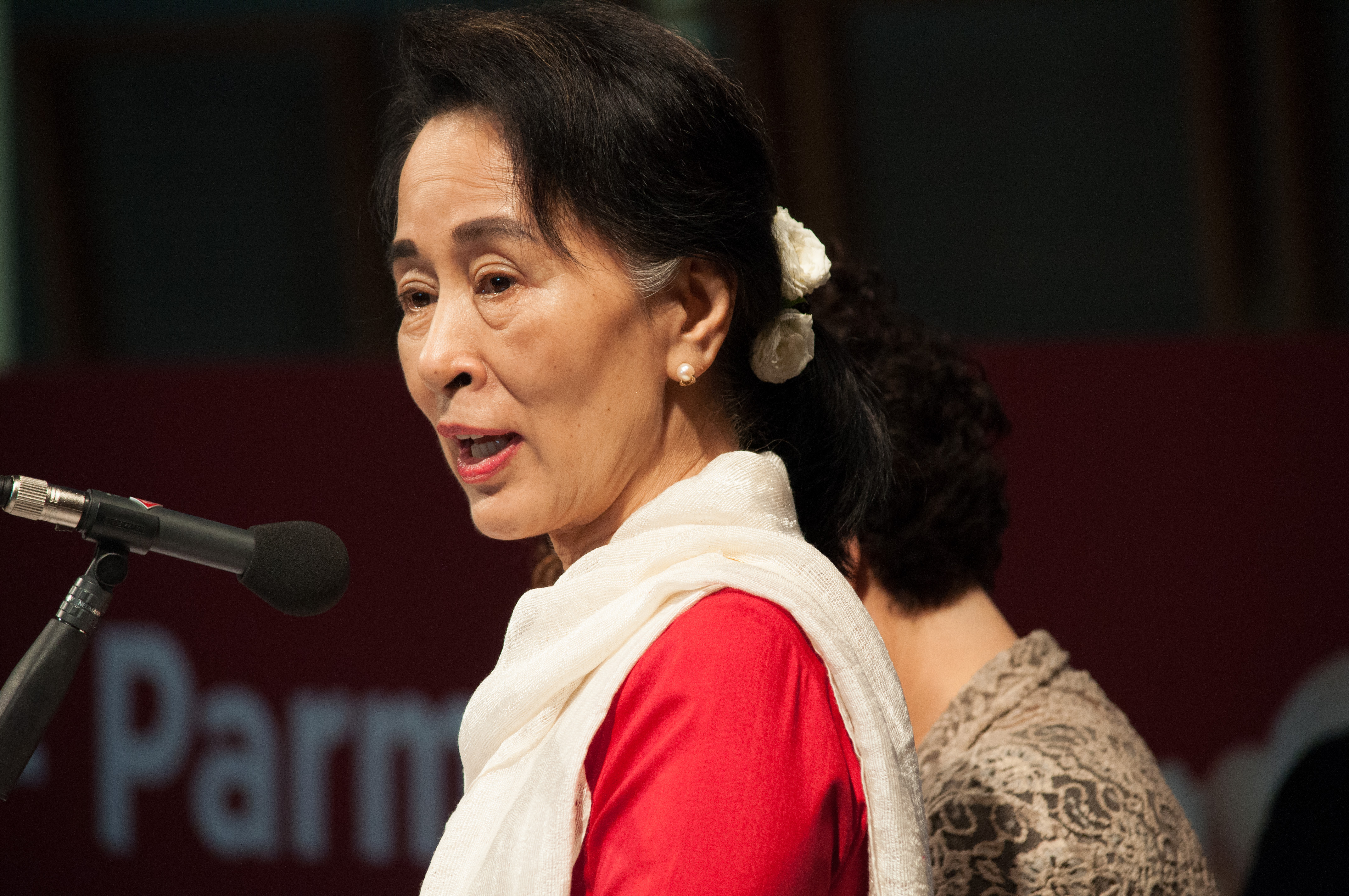
Aung San Suu Kyi (Photo: Comune Parma/Flickr Creative Commons)
The Nobel Peace Prize is awarded annually to individuals and institutions that “have done the most or the best work for fraternity between nations, for the abolition or reduction of standing armies and for the holding and promotion of peace congresses.” Throughout its 115 year history, it has created many controversies over the merits of the recipients. The latest is the current head of Government in Myanmar, Aung San Suu Kyi, who was given the award in 1991.
Being the daughter of the late founder of Myanmar’s modern army may not sit that well as a prominent human rights campaigner in her country but does not rule out any legitimate attempts to develop democracy in the former British colony. After spending much of her life in exile, she returned to help establish the National League for Democracy as the main opposition party in 1988. Within three years Suu Kyi was nominated and won the much-celebrated peace prize. To her credit, she was reported to have espoused Mahatma Gandhi’s philosophy of non-violence.
The 71-year-old former human rights campaigner is found wanting in standing up for the 1.3 million Rohingya Muslims in her country despite being in a position of power herself as the effective Prime Minister of Myanmar. As one of the most persecuted minorities in the world, they have faced military crackdowns even before Suu Kyi became politically active. Their plight though has become even worse rather than better since she became the head of Government last year.
The latest attacks on Rohingya Muslims has been described by the UN as genocide. Although announcing the creation of a commission on Rakhine state, where they have faced persecution, she refused to grant citizenship to the stateless Muslims, instead issuing only identity cards. Even when interviewed, Suu Kyi denied allegations of ethnic cleansing of the minority and declined to attend the UN General Assembly last week to avoid condemnation of her Government.
Amnesty International accused the peace laureate with “burying” her head in the sand and telling “untruths” over what it described as ethnic cleansing of minority Rohingya Muslims in Myanmar with 470,000 fleeing to Bangladesh to escape a brutal crackdown by the military. In her speech in English to Parliament last week, Suu Kyi insisted that her Government does not fear “international scrutiny” of its handling of the growing Rohingya crisis. She claimed there had been no “clearance operations”. UN High Commissioner for Human Rights, Zeid Ra’ad al-Hussein, denounced the brutal killings as a “textbook example” of ethnic cleansing.
While the de facto Prime Minister may have been in denial about the genocide, the reaction by the international community has been rather lethargic at best. At the time of going to press, the British Government announced it was stopping all defence engagement and training of the Burmese military by the Ministry of Defense until “this issue is resolved.” Speaking at the General Assembly in New York, Prime Minister, Theresa May, said she was “very concerned” about what is happening to the Rohingya people in Burma. “The military action against them must stop,” she said.
As the former colonial power in Myanmar, Britain is seen as having a special responsibility towards the country’s advent towards democracy. Like the rest of the EU as well as the US, the west was criticised for lifting economic sanctions too prematurely but there was no indication from May of re-imposing other sanctions. Instead, the UK Government was seen to be quick off the marks to lead a trade delegation to Myanmar back in 2012.
At the time, former Foreign Office Minister, Hugo Swire, insisted that Britain’s policy towards Myanmar was consistent with other countries in wanting to put the country on the road to democracy, openness and transparency, despite its abuse of minority groups, including Rohingya Muslims. In an exclusive interview with The Muslim News, Swire admitted that “not everything in the garden is rosy” but said it was a country that had been “held back, a country which we believe is on the right transitional path. We think they can go quicker, we think there is a huge job to be done by the international community.”
Back in June Labour MP Yasmin Qureshi, told the British Parliament that “over the past 18 months the UK Government have reversed a decade-long policy of prioritising human rights in Burma (Myanmar) and supported the lifting of all European sanctions on the country despite the fact that none of the human rights benchmarks of the European Union has been met.”